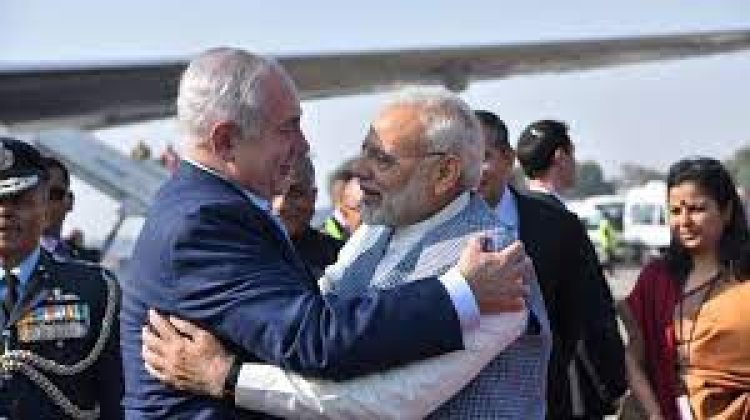Israel Declares War on Hamas: An Insight into the Ongoing Conflict
United We Stand With ISRAEL

Israel Declares War on Hamas: An Insight into the Ongoing Conflict
Introduction
The ongoing conflict between Israel and Hamas has been intensifying in recent times, with tensions reaching unprecedented levels. The commencement of hostilities by Israel against Hamas has not only garnered worldwide attention but has also sparked apprehensions regarding the wide-ranging repercussions of the conflict. This article aims to delve into the complexities of the current war, illuminating the underlying motivations, ramifications, and potential avenues for resolution. Without further ado, let us embark on a journey to unravel the intricacies of the Israel and Hamas conflict.
Israel Declares War on Hamas: Understanding the Background
Israel and Hamas have a longstanding history of conflict that stems from complex political, territorial, and ideological differences. Hamas, an Islamic resistance movement, was established in 1987 with the goal of liberating Palestine from Israeli occupation. Over the years, the conflict has witnessed periodic escalations and sporadic violence, with numerous failed attempts at finding a lasting resolution.
The recent flare-up began with mounting tensions over the eviction of Palestinian families from the Sheikh Jarrah neighborhood in East Jerusalem. This, coupled with clashes between Palestinian worshippers and Israeli police at the Al-Aqsa Mosque, created a volatile atmosphere that quickly spiraled into a full-scale confrontation.
The Escalation of the Conflict
1. Rocket Attacks and Airstrikes: Following Israel's declaration of war on Hamas, both sides have engaged in intense hostilities. Hamas intensified its rocket attacks targeting Israeli cities, while Israel responded with a barrage of airstrikes aimed at Hamas-controlled areas in Gaza. The attacks have resulted in significant casualties on both sides and have brought immense suffering to civilian populations.
2. Ground Offensive: As the conflict escalated, Israel launched a ground offensive in Gaza to further weaken Hamas's infrastructure and military capabilities. This move aimed to suppress rocket fire and dismantle underground tunnels being used by Hamas to launch attacks on Israeli territory.
3. Humanitarian Crisis: The intense fighting has inflicted a severe humanitarian crisis in Gaza, with thousands displaced and essential infrastructure, including hospitals and schools, damaged or destroyed. The Palestinian population has been subjected to power outages, limited access to clean water, and a dire shortage of medical supplies, exacerbating an already precarious situation.
International Response and Mediation Efforts
1. Global Concerns and Calls for Ceasefire: The escalating violence has prompted international condemnation and urgent calls for a ceasefire. The United Nations, the European Union, and various governments across the world have expressed grave concerns over the disproportionate use of force and the loss of innocent lives. Efforts to negotiate a cease-fire and de-escalate the situation have been ongoing, but with limited success.
2. Role of Regional Players: Several regional actors, including Egypt, Qatar, and the United Arab Emirates, have attempted to mediate and broker a truce between Israel and Hamas. These countries have played pivotal roles in the past, striving to negotiate diplomatic solutions and ease tensions. However, the complexity of the conflict and entrenched positions of the parties involved have posed significant challenges to successful mediation.
Possible Resolutions and the Road Ahead
1. Ceasefire and Negotiations: The most pressing resolution is an immediate ceasefire that would bring an end to the ongoing violence and restore calm in the region. Ceasefire agreements would need to address and prevent the root causes of the conflict, such as land disputes, access to resources, and the political status of Gaza and the West Bank. Negotiations to find a lasting solution must involve all relevant stakeholders, including Israel, Hamas, and the Palestinian Authority.
2. International Support and Reconstruction: After a ceasefire is achieved, international support is crucial to rebuilding the war-torn Gaza Strip and addressing the pressing humanitarian needs of the Palestinian population. This support should include financial aid, infrastructure development, and efforts to facilitate economic growth, thereby creating opportunities for peace and stability in the region.
3. Long-term Peace Process: A comprehensive and inclusive peace process that addresses the grievances and aspirations of both Israelis and Palestinians is essential for achieving lasting peace in the region. This process should seek to establish an independent and viable Palestinian state alongside a secure Israel, taking into account the principles of international law and relevant United Nations resolutions.
India's Stand in Israel Hamas Conflict: Supporting Israel's Cause
Introduction
As the Israel-Hamas conflict continues to escalate, the world watches with bated breath. Among the countries around the globe, India finds itself in a unique position. With historical ties to both Israel and Palestine, India's stance in this conflict holds significant importance. In this article, we explore where India stands in the Israel-Hamas conflict and discuss what India can do to support Israel in this challenging time.
Where does India stand?
India's foreign policy has long advocated for a peaceful resolution to the Israel-Palestine conflict, supporting a two-state solution. However, when it comes to the Israel-Hamas conflict, India has unequivocally expressed its support for Israel's right to defend itself against Palestinian militants.
In a recent statement, India's Ministry of External Affairs reaffirmed its stand, stating that Israel has the right to defend its citizens from indiscriminate rocket attacks launched by Hamas. India recognizes Israel's legitimate security concerns and condemns the use of violence against innocent civilians.
India's position emphasizes the need for a de-escalation of the conflict and urges both parties to engage in dialogue to achieve a lasting peace. India's history of advocating for a negotiated settlement aligns with its approach to the current conflict.
India's support for Israel
India and Israel share deep-rooted bilateral ties that span across various sectors. Defense cooperation, agriculture, science and technology, and trade are among the significant areas of collaboration between the two nations. In recent years, these ties have grown stronger, with India becoming one of Israel's largest defense partners.
To support Israel in the Israel-Hamas conflict, India can take several steps:
1. Diplomatic Support: India can use its diplomatic channels to convey its support for Israel's right to self-defense at international forums like the United Nations. By standing firmly with Israel, India can show solidarity and encourage other nations to take a balanced approach in assessing the conflict.
2. Economic Assistance: India can explore avenues to extend economic assistance to Israel to help counter the economic challenges posed by the ongoing conflict. Increased trade and investment can bolster Israel's economy, enabling it to recover and rebuild after the crisis.
3. Humanitarian Aid: India's rich experience in disaster management and humanitarian assistance can be leveraged to provide aid to affected areas in Israel. By offering medical supplies, expertise, and support, India can contribute to the relief efforts and help alleviate the suffering of the affected population.
4. Security Cooperation: Strengthening security cooperation with Israel can be another way for India to support its ally. Sharing intelligence, conducting joint military exercises, and enhancing counter-terrorism efforts can demonstrate India's commitment to addressing shared security concerns.
Conclusion
India's position in the Israel-Hamas conflict is clear. It unequivocally supports Israel's right to self-defense and condemns the indiscriminate rocket attacks by Hamas. While advocating for a peaceful resolution, India holds historical and strategic ties with Israel that provide the foundation for a strong partnership.
By leveraging its diplomatic, economic, and humanitarian strengths, India can extend meaningful support to Israel during this challenging time. Through such efforts, India can not only strengthen its bond with Israel but also contribute to regional stability and the pursuit of lasting peace in the Israel-Palestine conflict.
The ongoing conflict between Israel and Hamas has resulted in immense human suffering, with no immediate resolution in sight. As the world watches with concern, it is crucial to recognize that achieving peace requires a multifaceted approach, involving political negotiations, international collaborations, and addressing the root causes of the conflict. Only through a commitment to understanding, dialogue, and compromise can a lasting peace be realized for the people of Israel and Palestine.
Okay, Now check this out…
TradeFxP Features
If you choose to be a self-employed retail trader, here are a few things we offer:
- The best trading Platform
- No Requotes
- Lowest Spreads
- High level liquidity
- Interbank connectivity
- Pure STP/DMA/ECN
- Free signals
- Best support
- Crypto Wallet and withdrawals / Deposits (USDT)
- Robust CRM
- TradeFxP wallet
- Once click withdrawal
- Multiple payment options
- Local offices to walk in
- Free VPS
- Free Video Chat / Virtual Meetings
- And many more…
If you choose to be a part of our managed account programme:
- All of the above +
- High level risk management
- Capital protection
- Only 30% of the capital used
- Negative balance protection
- Our fee is from the profits only
- Monthly profit withdrawal
- Wallet system – Use it like Phonepe, or google pay
- Crypto wallet and withdrawals / Deposits (USDT)
- Live monitoring
- MyFxbook Live monitoring
- Copy Trading
- And many more…
Optional: If you do not withdraw your profits for 2 months, our system will use those profits to trade and will keep your 100% capital safe and secure for margin purposes. This is optional, and if you choose not to be a part of it, you can withdraw your profits from the first month itself.
If you choose to be a part of us as an introducing broker (IB) or channel partner,
- Industry best Rebates
- Local Office support
- Staff support
- Marketing support
- Marketing materials
- And many more…
Having said that….
You can join our Forex Managed Account programme and earn 1-2% profits daily. See for yourself by clicking the below link.
Have a great journey, and may you catch some big waves on your way to prosperity!
To see Ai Forex Trading for real, use these credentials.
- Low-risk strategy:
- Mt4: 112018
- Pw: Allah@101
- Server: tradefxp live,
1. To read why you should be with us, click here.
2. To open an account, click here.
3. To see our regulation certificate, click here.
4. To see our news with the IFMRRC, click here.
5. For claims, click here.
6. For the main site, click here.
7. For blogs and articles, click here.
8. Main Website: www.TradeFxP.com



 admin
admin 










